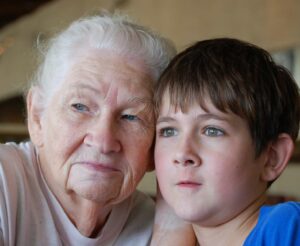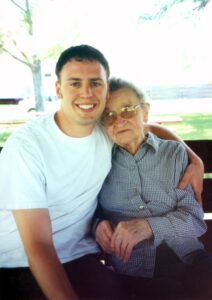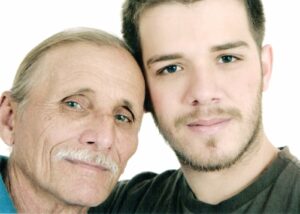Here’s a term you might not be familiar with — the sandwich generation. It typically refers to the generation that cares for both children and aging parents.
Traditionally, the generation is made up of people in their thirties and forties. But with technology, advanced healthcare and a wide span of years during which parents decide to have children, the sandwich generation can include people in their twenties and fifties, maybe even sixties, in some cases. The Pew Research Center says, “Who is the sandwich generation? Its members are mostly middle-aged: 71% of this group is ages 40 to 59. An additional 19% are younger than 40 and 10% are age 60 or older.”
No matter what age you are, though, there is no doubt that sandwich generation caregivers experience some significant challenges.
Time is not on our side
 There are only so many hours in the day, and so many days in the week. Even if you break that down into minutes, sandwich generation caregivers might still find themselves operating at a deficit. The senior parent in your life might need to see a specialist with limited availability twenty minutes before your youngest is due to play the final game of the baseball season.
There are only so many hours in the day, and so many days in the week. Even if you break that down into minutes, sandwich generation caregivers might still find themselves operating at a deficit. The senior parent in your life might need to see a specialist with limited availability twenty minutes before your youngest is due to play the final game of the baseball season.
Both need rides, both need to be there on time or earlier, and both want you to be there with them. You can’t reschedule either activity, and your spouse is slated to be out of town for the week. Yes, you can probably find a ride for your baseball star, but you don’t know how your mother will feel after her appointment or how long the appointment will take, so you may not be able to make the game, even late.
Sometimes, even though you’ve planned better than an agent undertaking mission impossible, the situation is still very much impossible. You can’t be in two places at the same time, at least at this point in human evolution.
Money is finite
If you’ve ever been in the position of standing in the checkout line only to realize you didn’t have enough in the bank to cover the purchase and you weren’t sure whether you’d reached your credit limit on your card, then you know what it’s like to start sweating over finances. That’s the feeling many sandwich generation caregivers have when they are financially supporting children and parents. Twelve-year-old Jennifer needs braces, but 83-year-old dad needs prescriptions that Medicare  doesn’t cover. Long-term care benefits are running out, and you haven’t even started thinking about pitching in to cover your oldest child’s college tuition this semester.
doesn’t cover. Long-term care benefits are running out, and you haven’t even started thinking about pitching in to cover your oldest child’s college tuition this semester.
While this scenario doesn’t fit everyone, even when aging family members bring with them enough to support themselves financially, cash flow can be a constant exercise in strategy, paperwork and patience. Budgeting requires careful attention to expected and unexpected life events. Factor in time for forms and payments to be processed, and you could start feeling like a harried business owner who has never taken a business course.
Attention is valuable
From your youngest tugging at your pant leg to your mother calling you from the other room, it’s pretty obvious you are needed. It seems like dad always wants to talk just as the kids are coming through the door from school. Why is it that whenever you try to read to your mother, your kids start duking it out in the living room? Maybe it’s more like your college-age kid is blowing up your phone with texts while your father is asking you again about tomorrow’s plans, while your high-school-age child wants to know what’s for dinner.
The more you look around, the more you see that you being there for the ones you love is greatly valued. But how do you manage to give everyone what they need without burning yourself out?
You are n ot alone
ot alone
According to the Pew Research Center, “Nearly half (47%) of adults in their 40s and 50s have a parent age 65 or older and are either raising a young child or financially supporting a grown child (age 18 or older).”
And, “…nearly four-in-ten (38%) say both their grown children and their parents rely on them for emotional support.”
If you feel exhausted half the time, this could be the reason why. And while these challenges are common, they can lead to caregiving fatigue, especially if you don’t have enough support. That’s not a road you want to travel. If you feel you’re headed in that direction, be sure to reach out. Friends, family, doctors, local agencies and other organizations are there to help you find an extra pair of hands, ears and wheels when you most need them.
This post is sponsored by Home Instead Senior Care, serving Prince William and Fauquier counties.



